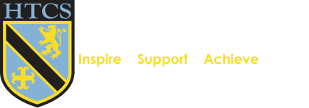- Introduction to Food Safety and Hygiene & Nutrition
- Knife skills, Pasta Salad, Bread Making
- Writing recipes, and Food Science
- Pizza, Muffins
- Wider Food issues: Packaging, Seasonality, Food Choices
- Goujons
- Meal Planning Project
- Scones
Technology and Enterprise
Food & Nutrition
- Hygiene and Nutrition
- Crudites and Dips
- Food High in Fats and Sugars
- Shortbread, Carrot Cake, Cheesecake, Oat Cookies
- Food Production and Food Science
- Mini Quiches
- Nutrition, Hygiene and Functional Properties
- Irish Soda Bread, Decorative Focaccia
- NEA 1 Practice
- Gluten Investigation
- Wider Food Issues (Religious Diets and Food Provenance)
- Curry and Flatbread, Fajitas, Pasta Bake, Toad in the Hole
- Special Dietary Requirements
- Scones Investigation
KS3 Computing
- E-Safety, ICT Skills and School Systems
- Spreadsheet Modelling
- Computational Thinking and Flowol
- Programming Essentials in Scratch
- HTML
- E-Safety and Interactive Multimedia Product
- Scratch to Python
- Mobile App Development
- Data Representation
- Introduction to Python Programming
- E-Safety and Python Programming
- Networks
- Image Representation and Digital Graphics
- Animation
- Cyber Security
GCSE Food Preparation and Nutrition
- Practical skills: intermediate to higher cookery skills with little reliance on standard components.
- Students will cover a range of meals and desserts with a focus on presentation including doughs, sponges, pastries, sauces, cook chill meals
- Understanding food science and nutrients in depth
- Investigation into a food science task. This focuses on report writing and conducting an investigation
- A wide range of social, moral, cultural and environmental issues
- NEA 1 – Investigative Report (15%)
- NEA 2 – A portfolio of work including a final 3 course meal (35%)
- Final Exam (50%)
Cambridge Nationals Creative iMedia
BTEC Construction and The Built Environment
Unit 3: Construction & Design. Learning Aims:
- A understand the work of the construction industry
- B understand a client’s needs to develop a design brief for a low-rise building
- C produce a range of initial sketch ideas to meet the requirements of a client brief for a low-rise building
Unit 9: Exploring Electrical Principles and Techniques: Learning Aims:
- A understand tools, materials and equipment used for electrical engineering operations
- B develop practical skills using safe techniques to undertake electrical operations
- Unit 1: Construction Technology. Learning Aims:
- A understand the structural performance required for low-rise construction
- B explore how sub-structures are constructed
- C explore how superstructures are constructed.
Unit 2: Scientific and Mathematical Applications for Construction. Learning Aims:
- A understand the effects of forces and temperature changes on materials used in construction
- B use mathematical techniques to solve construction problems.
Cambridge Nationals Engineering Design
R040 – Evaluating Designs and Modelling Coursework.
- Analysis of a product
- CAD
- Modelling
R038 – Principles of Engineering Design
- Designing processes
- Designing requirements
- Communicating design outcomes
- Evaluating design ideas
R039 – Communicating Designs
- Freehand sketching
- Engineering Drawing
- CAD (Computer Aided Design)
R038 – Principles of Engineering Design
- Designing Processes
- Designing Requirements
- Communicating Design Outcomes
- Evaluating Design Idea
GCSE Business Studies
The course is a 2 year course with 2 exams to sit. Both exams are sat at the end of Year 11 and are worth 50% each. The exam is sat with the OCR exam board. In Year 10 students cover:
Business Activity:
- Enterprise
- Ownership
- Business Plans
- Objectives
- Stakeholders
- Business Growth
Marketing:
- Role of Marketing
- Product
- Place
- Price
- Promotion
- Market Research
- Segmentation
People
- Role of Human Resources
- Organisational Structures
- Communication
- Recruitment
- Selection
- Monetary Motivation
- Non-monetary Motivation
- Training
- Employment Law
The course is a 2 year course with 2 exams to sit. Both exams are sat at the end of Year 11 and are worth 50% each. The exam is sat with the OCR exam board. In Year 11 the following content is taught:
Operations:
- Production Processes
- Quality
- Sales Process and Customer Service
- Consumer Law
- Business Location
- Working With Suppliers
Finance:
- Role of Finance
- Sources of Finance
- Revenues, Costs, Profits and Loss
- Break Even
- Cash and Cash Flow
Influences on a Business:
- Ethical Considerations
- Environmental Considerations
- Globalisation
- The Independent Nature of Business
Please contact Mrs Lindsay Carling for more information on the Technology and Enterprise curriculum: lcarling@hightunstall.hartlepool.sch.uk.
